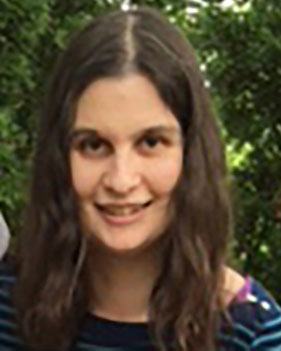| Presenter(s) |  Dr. Karen Schrier, Associate Professor, is the founding director of the Games & Emerging Media program at Marist College. From 2018-2019, she is also serving as a Belfer Fellow for the ADL's Center for Technology & Society, where she will be making anti-bias games and researching using games for perspective-taking, compassion, and bias reduction. Prior to Marist, she spent over a decade producing websites, apps, and games at organizations such as Scholastic, Nickelodeon, BrainPOP, and PBS/Channel 13. She is the editor of the book series, Learning, Education & Games, published by ETC Press (Carnegie Mellon), and co-editor of two books on games and ethics. She has written over 40 publications, including single-authored articles published in journals such as Educational Technology Research & Development and the Journal of Moral Education. With Matthew Farber, she co-authored the UNESCO MGIEP working paper, The Limits and Strengths of Using Digital Games as "Empathy Machines." Her latest book, Knowledge Games: How Playing Games Can Help Solve Problems, Create Insight, and Make Change, was published in 2016 by Johns Hopkins University Press. She is also working on a book for Oxford University Press on using games for civics and ethics education. Dr. Schrier holds a doctorate from Columbia University/Teachers College, master's degree from MIT, and a bachelor's degree from Amherst College. Dr. Karen Schrier, Associate Professor, is the founding director of the Games & Emerging Media program at Marist College. From 2018-2019, she is also serving as a Belfer Fellow for the ADL's Center for Technology & Society, where she will be making anti-bias games and researching using games for perspective-taking, compassion, and bias reduction. Prior to Marist, she spent over a decade producing websites, apps, and games at organizations such as Scholastic, Nickelodeon, BrainPOP, and PBS/Channel 13. She is the editor of the book series, Learning, Education & Games, published by ETC Press (Carnegie Mellon), and co-editor of two books on games and ethics. She has written over 40 publications, including single-authored articles published in journals such as Educational Technology Research & Development and the Journal of Moral Education. With Matthew Farber, she co-authored the UNESCO MGIEP working paper, The Limits and Strengths of Using Digital Games as "Empathy Machines." Her latest book, Knowledge Games: How Playing Games Can Help Solve Problems, Create Insight, and Make Change, was published in 2016 by Johns Hopkins University Press. She is also working on a book for Oxford University Press on using games for civics and ethics education. Dr. Schrier holds a doctorate from Columbia University/Teachers College, master's degree from MIT, and a bachelor's degree from Amherst College.
|
| Description | What does it mean to "belong" when it comes to gaming? Are there types of designs, communities and play styles that are more exclusionary or inclusive? When we make a game that targets a certain demographic, do we also end up excluding some people? How do we make games that express our unique identities and perspectives, while also ensuring that everyone else feels like they "belong" in our game world? In this talk, I will share late-breaking takeaways from the work I am doing with the ADL's Center for Technology and Society on games and inclusion, bias reduction, and empathy. I will also provide recommendations that designers, educators, and researchers can use to help people feel more included in games and gaming communities. |

 Dr. Karen Schrier, Associate Professor, is the founding director of the Games & Emerging Media program at Marist College. From 2018-2019, she is also serving as a Belfer Fellow for the ADL's Center for Technology & Society, where she will be making anti-bias games and researching using games for perspective-taking, compassion, and bias reduction. Prior to Marist, she spent over a decade producing websites, apps, and games at organizations such as Scholastic, Nickelodeon, BrainPOP, and PBS/Channel 13. She is the editor of the book series, Learning, Education & Games, published by ETC Press (Carnegie Mellon), and co-editor of two books on games and ethics. She has written over 40 publications, including single-authored articles published in journals such as Educational Technology Research & Development and the Journal of Moral Education. With Matthew Farber, she co-authored the UNESCO MGIEP working paper, The Limits and Strengths of Using Digital Games as "Empathy Machines." Her latest book, Knowledge Games: How Playing Games Can Help Solve Problems, Create Insight, and Make Change, was published in 2016 by Johns Hopkins University Press. She is also working on a book for Oxford University Press on using games for civics and ethics education. Dr. Schrier holds a doctorate from Columbia University/Teachers College, master's degree from MIT, and a bachelor's degree from Amherst College.
Dr. Karen Schrier, Associate Professor, is the founding director of the Games & Emerging Media program at Marist College. From 2018-2019, she is also serving as a Belfer Fellow for the ADL's Center for Technology & Society, where she will be making anti-bias games and researching using games for perspective-taking, compassion, and bias reduction. Prior to Marist, she spent over a decade producing websites, apps, and games at organizations such as Scholastic, Nickelodeon, BrainPOP, and PBS/Channel 13. She is the editor of the book series, Learning, Education & Games, published by ETC Press (Carnegie Mellon), and co-editor of two books on games and ethics. She has written over 40 publications, including single-authored articles published in journals such as Educational Technology Research & Development and the Journal of Moral Education. With Matthew Farber, she co-authored the UNESCO MGIEP working paper, The Limits and Strengths of Using Digital Games as "Empathy Machines." Her latest book, Knowledge Games: How Playing Games Can Help Solve Problems, Create Insight, and Make Change, was published in 2016 by Johns Hopkins University Press. She is also working on a book for Oxford University Press on using games for civics and ethics education. Dr. Schrier holds a doctorate from Columbia University/Teachers College, master's degree from MIT, and a bachelor's degree from Amherst College.